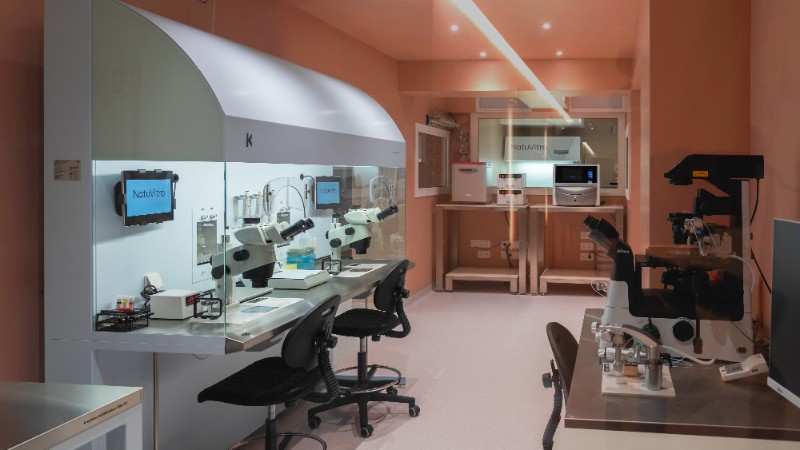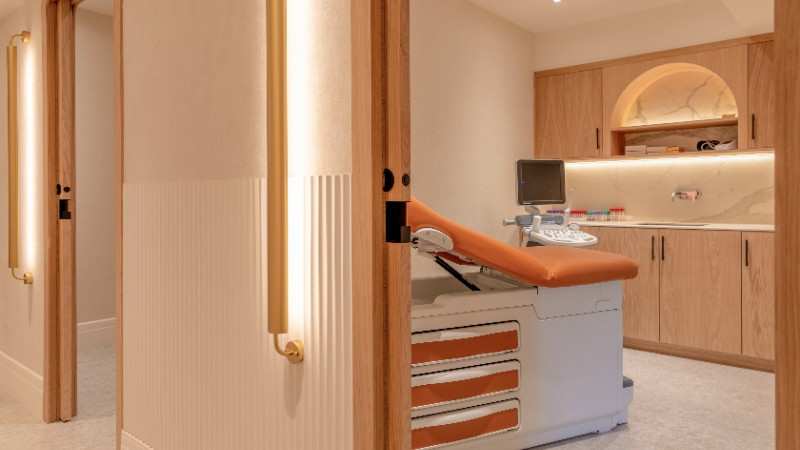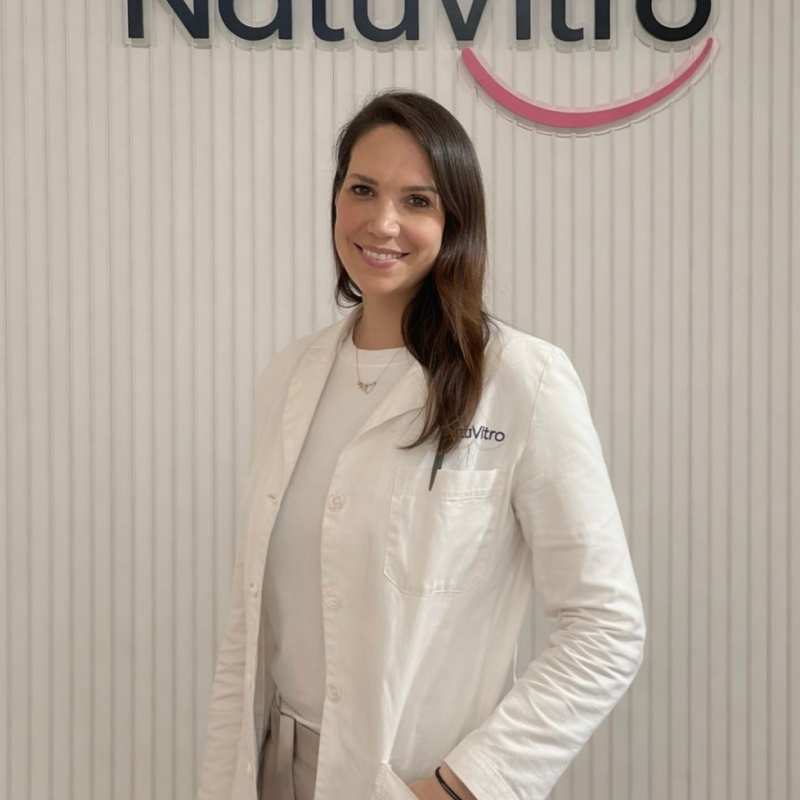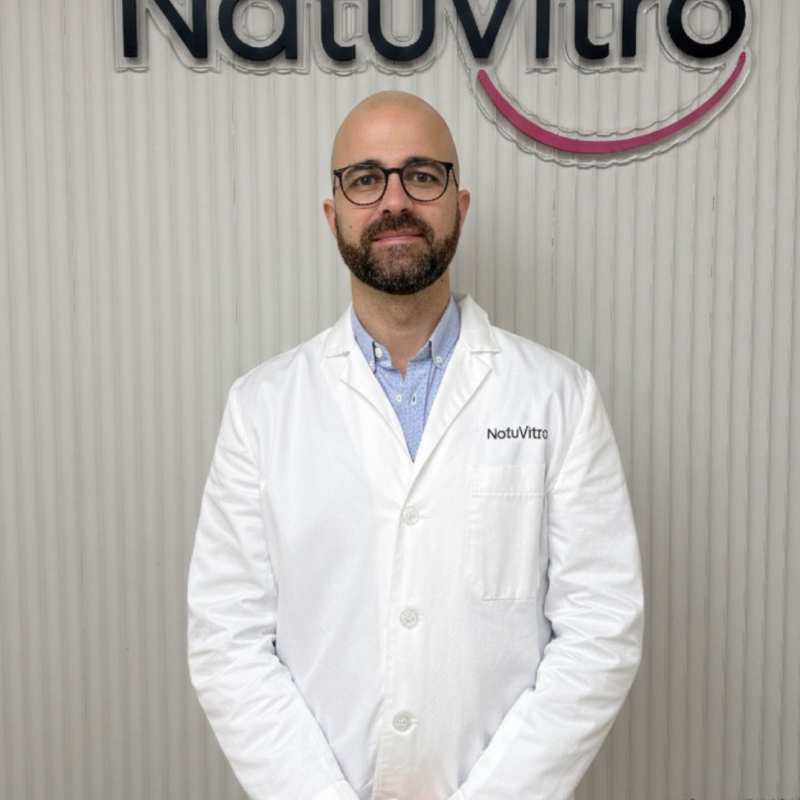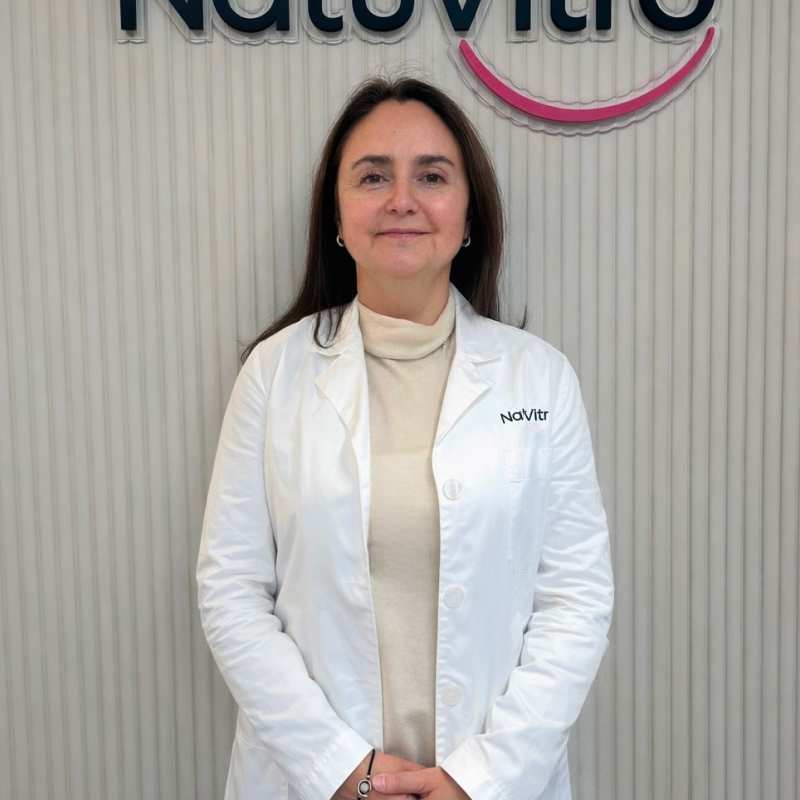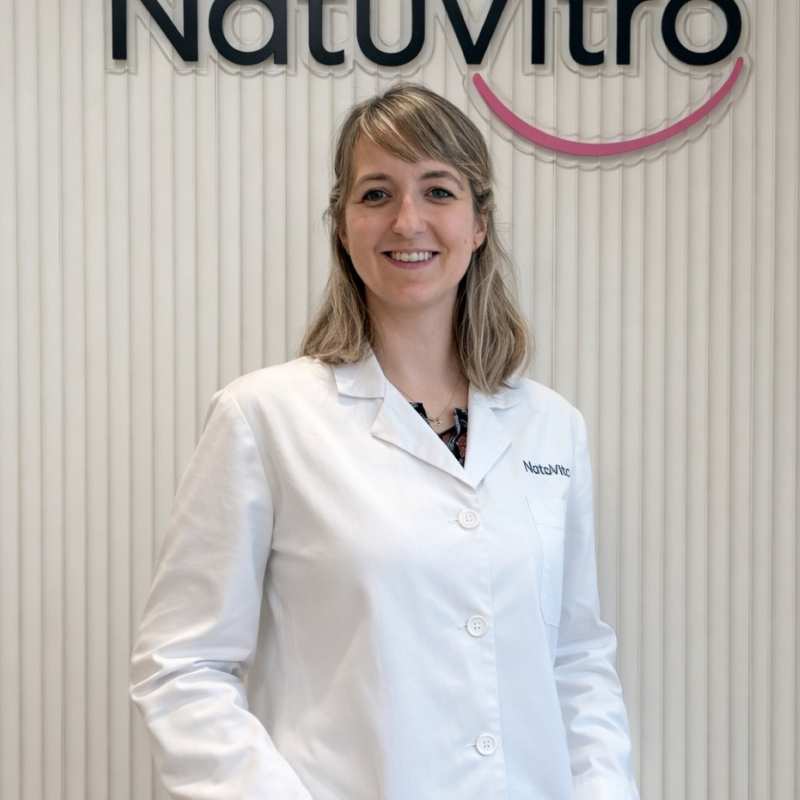
Polycystic ovary syndrome (PCOS) is a common hormonal condition that affects between 8 and 13% of women of reproductive age (WHO). It usually begins during adolescence, but symptoms can fluctuate over time.
Polycystic ovary syndrome (PCOS) can cause hormonal imbalances, irregular periods, excessive androgen levels, and cysts on the ovaries. Irregular periods, usually accompanied by a lack of ovulation, can make pregnancy difficult. Polycystic ovary syndrome is one of the leading causes of infertility.
Polycystic ovary syndrome is a chronic and incurable condition. However, some symptoms can improve with lifestyle changes, medications, and fertility treatments.
What causes polycystic ovary syndrome?
The exact cause of polycystic ovary syndrome is unclear. Many women with polycystic ovary syndrome have insulin resistance. This means the body cannot use insulin well. Insulin levels build up in the body and can lead to higher androgen levels. Obesity can also increase insulin levels and worsen the symptoms of polycystic ovary syndrome.
Polycystic ovary syndrome can also be hereditary. It is common for sisters or a mother and daughter to have PCOS.
What are the symptoms of polycystic ovary syndrome?
The symptoms of polycystic ovary syndrome can include:
- Absence of periods, irregular periods, or very light periods
- Large ovaries or those with numerous cysts
- Excessive hair growth, especially on the face, stomach, and back (hirsutism)
- Weight gain, particularly around the stomach (abdomen)
- Acne or oily skin
- Male-pattern baldness or hair loss
- Infertility
- Small patches of excess skin on the neck or armpits (skin tags)
- Dark or thick patches of skin on the back of the neck, in the armpits, and under the breasts.
Magnitude of the problem
Polycystic ovary syndrome is a significant public health issue and one of the most common hormonal disorders among women of reproductive age. The condition affects approximately 8 to 13% of women of childbearing age, and up to 70% of cases remain undiagnosed.
The prevalence of polycystic ovary syndrome is higher among certain ethnic groups, and these groups often experience more complications, particularly related to metabolism.
The biological and psychological effects of polycystic ovary syndrome, particularly those related to obesity, body image, and infertility, can lead to mental health issues and social stigma.
Polycystic ovary syndrome can also cause anxiety, depression, or a negative body image. Certain symptoms such as infertility, obesity, and unwanted body hair can generate social stigma. This situation can have consequences in other areas of life such as family, relationships, work, and participation in community life.
- Polycystic ovary syndrome (PCOS) affects approximately 8 to 13% of women of reproductive age.
- Up to 70% of affected women remain undiagnosed worldwide.
- Polycystic ovary syndrome is the most common cause of anovulation and one of the leading causes of infertility.
- Polycystic ovary syndrome is associated with a variety of long-term health problems that affect physical and emotional well-being.
- PCOS is hereditary, but there are ethnic variations in how it manifests and how it affects those who have it.
How is PCOS diagnosed?
Polycystic ovary syndrome is diagnosed by the presence of two or more of the following:
- Signs or symptoms of elevated androgen levels (unwanted facial or body hair, hair loss on the head, acne, or high testosterone levels in the blood), after excluding other causes.
- Irregular or absent menstruation, after excluding any other cause.
- Polycystic ovaries visible on ultrasound.
Blood tests can be used to identify characteristic changes in hormone levels, although these changes are not universal. Women with polycystic ovary syndrome may experience elevated levels of:
- Testosterone (an ovarian androgen hormone that influences hair growth);
- Estrogen (an ovarian hormone that stimulates the growth of the uterine lining [endometrium]);
- Luteinizing hormone [LH, a pituitary hormone that acts on hormone production by the ovaries and plays an important role in normal ovulation];
- Insulin [a hormone that primarily intervenes in the use of energy from food]; and
- Anti-Müllerian hormone [which measures the fertility level of the ovaries].
How is polycystic ovary syndrome treated?
Treatment for polycystic ovary syndrome depends on several factors. This may include your age, the severity of your symptoms, and your overall health. The type of treatment may also depend on whether you wish to become pregnant.
If you plan to become pregnant, your treatment may include the following:
- A change in diet and activity. A healthy diet and increased physical activity can help you lose weight and reduce your symptoms. They can also help your body use insulin more efficiently, lower blood glucose levels, and promote ovulation.
- Medications to induce ovulation. Medications can help the ovaries release eggs normally. These medications also come with certain risks. They can increase the risk of multiple births (twins or more). They can also cause ovarian hyperstimulation. This occurs when the ovaries release too many hormones. This can cause symptoms such as abdominal swelling and pelvic pain.
If you do not intend to become pregnant, your treatment may include the following:
- Birth control pills that help regulate menstrual cycles, reduce androgen levels, and reduce acne.
- Diabetes medications. Often used to reduce insulin resistance in polycystic ovary syndrome. They may also help reduce androgen levels, slow hair growth, and promote more regular ovulation.
- A healthy diet and increased physical activity can help you lose weight and reduce your symptoms.
What are the complications of polycystic ovary syndrome?
Women with polycystic ovary syndrome are more likely to develop certain serious health problems, such as type 2 diabetes, high blood pressure, heart and vascular problems, and uterine cancer. Additionally, women with polycystic ovary syndrome often have difficulty getting pregnant (fertility).
When should I consult a doctor?
If you have irregular or missed periods, excessive hair growth, acne, and weight gain, call your doctor for an evaluation.
What can assisted reproductive techniques offer in PCOS?
Women with polycystic ovary syndrome (PCOS) usually have a normal uterus and functional ovaries. Ovulation is interrupted, but fertility is not necessarily compromised. However, in some cases, spontaneous pregnancy may not be possible, so medically assisted reproduction (MAR) techniques can provide solutions for these women.
Specialists can implement different protocols for medically assisted reproduction:
- Artificial insemination (AI): This ART technique facilitates the union of sperm and egg after collecting a sample of sperm from the partner or a donor. Fertilization occurs in vivo, naturally in the patient's uterus.
- In vitro fertilization (IVF): This method involves bringing sperm and egg together in the laboratory. Once fertilization has occurred, the resulting embryos are transplanted into the future mother’s uterus.
- In vitro fertilization with intracytoplasmic sperm injection (ICSI): in this method, a sperm is injected directly into the nucleus of the egg, still in the laboratory.
However, these assisted reproductive treatments for patients with polycystic ovary syndrome carry notable risks: - Risk of ovarian hyperstimulation: The stimulation phase follows a specific protocol taking into account the complex responses of polycystic ovaries to avoid ovarian hyperstimulation.
- Risk of multiple pregnancies: Another potential risk is the increased number of multiple pregnancies.
To mitigate the risk of ovarian hyperstimulation, the induction phase follows a tailored protocol that takes into account the complex responses of ovaries affected by PCOS.
We help you find a solution
If you have been diagnosed with polycystic ovary syndrome (PCOS) and are interested in starting a pregnancy, contact NatuVitro today. Our team of specialists understands the unique challenges posed by PCOS and is dedicated to guiding you every step of the way. With extensive experience helping individuals with polycystic ovary syndrome realize their dream of becoming parents, we tailor our approach to your specific needs.
Don’t let the complexities of polycystic ovary syndrome stand in your way to conception; we are here to support you every step of the way.
Our experts are ready to examine your case history, clarify your choices, and address every question you have.
Don't wait to make informed decisions – your personalized guidance awaits!
- Spain (España)+34
- France (La France)+33
- Italy (Italia)+39
- United Kingdom+44
- United States+1
- Belgium (België)+32
- Switzerland (Schweiz/Suisse)+41
- Germany (Deutschland)+49
- Netherlands (Nederland)+31
- Afghanistan (افغانستان)+93
- Albania (Shqipëri)+355
- Algeria (الجزائر)+213
- American Samoa+1
- Andorra+376
- Angola+244
- Anguilla+1
- Antigua and Barbuda+1
- Argentina+54
- Armenia (Հայաստան)+374
- Aruba+297
- Ascension Island+247
- Australia+61
- Austria (Österreich)+43
- Azerbaijan (Azərbaycan)+994
- Bahamas+1
- Bahrain (البحرين)+973
- Bangladesh (বাংলাদেশ)+880
- Barbados+1
- Belarus (Беларусь)+375
- Belize+501
- Benin (Bénin)+229
- Bermuda+1
- Bhutan (འབྲུག)+975
- Bolivia+591
- Bosnia and Herzegovina (Босна и Херцеговина)+387
- Botswana+267
- Brazil (Brasil)+55
- British Indian Ocean Territory+246
- British Virgin Islands+1
- Brunei+673
- Bulgaria (България)+359
- Burkina Faso+226
- Burundi (Uburundi)+257
- Cambodia (កម្ពុជា)+855
- Cameroon (Cameroun)+237
- Canada+1
- Cape Verde (Kabu Verdi)+238
- Caribbean Netherlands+599
- Cayman Islands+1
- Central African Republic (République centrafricaine)+236
- Chad (Tchad)+235
- Chile+56
- China (中国)+86
- Christmas Island+61
- Cocos (Keeling) Islands+61
- Colombia+57
- Comoros (جزر القمر)+269
- Congo (DRC) (Jamhuri ya Kidemokrasia ya Kongo)+243
- Congo (Republic) (Congo-Brazzaville)+242
- Cook Islands+682
- Costa Rica+506
- Côte d’Ivoire+225
- Croatia (Hrvatska)+385
- Cuba+53
- Curaçao+599
- Cyprus (Κύπρος)+357
- Czech Republic (Česká republika)+420
- Denmark (Danmark)+45
- Djibouti+253
- Dominica+1
- Dominican Republic (República Dominicana)+1
- Ecuador+593
- Egypt (مصر)+20
- El Salvador+503
- Equatorial Guinea (Guinea Ecuatorial)+240
- Eritrea+291
- Estonia (Eesti)+372
- Eswatini+268
- Ethiopia+251
- Falkland Islands (Islas Malvinas)+500
- Faroe Islands (Føroyar)+298
- Fiji+679
- Finland (Suomi)+358
- French Guiana (Guyane française)+594
- French Polynesia (Polynésie française)+689
- Gabon+241
- Gambia+220
- Georgia (საქართველო)+995
- Ghana (Gaana)+233
- Gibraltar+350
- Greece (Ελλάδα)+30
- Greenland (Kalaallit Nunaat)+299
- Grenada+1
- Guadeloupe+590
- Guam+1
- Guatemala+502
- Guernsey+44
- Guinea (Guinée)+224
- Guinea-Bissau (Guiné Bissau)+245
- Guyana+592
- Haiti+509
- Honduras+504
- Hong Kong (香港)+852
- Hungary (Magyarország)+36
- Iceland (Ísland)+354
- India (भारत)+91
- Indonesia+62
- Iran (ایران)+98
- Iraq (العراق)+964
- Ireland+353
- Isle of Man+44
- Israel (ישראל)+972
- Italy (Italia)+39
- Jamaica+1
- Japan (日本)+81
- Jersey+44
- Jordan (الأردن)+962
- Kazakhstan (Казахстан)+7
- Kenya+254
- Kiribati+686
- Kosovo+383
- Kuwait (الكويت)+965
- Kyrgyzstan (Кыргызстан)+996
- Laos (ລາວ)+856
- Latvia (Latvija)+371
- Lebanon (لبنان)+961
- Lesotho+266
- Liberia+231
- Libya (ليبيا)+218
- Liechtenstein+423
- Lithuania (Lietuva)+370
- Luxembourg+352
- Macau (澳門)+853
- North Macedonia (Македонија)+389
- Madagascar (Madagasikara)+261
- Malawi+265
- Malaysia+60
- Maldives+960
- Mali+223
- Malta+356
- Marshall Islands+692
- Martinique+596
- Mauritania (موريتانيا)+222
- Mauritius (Moris)+230
- Mayotte+262
- Mexico (México)+52
- Micronesia+691
- Moldova (Republica Moldova)+373
- Monaco+377
- Mongolia (Монгол)+976
- Montenegro (Crna Gora)+382
- Montserrat+1
- Morocco (المغرب)+212
- Mozambique (Moçambique)+258
- Myanmar (Burma) (မြန်မာ)+95
- Namibia (Namibië)+264
- Nauru+674
- Nepal (नेपाल)+977
- New Caledonia (Nouvelle-Calédonie)+687
- New Zealand+64
- Nicaragua+505
- Niger (Nijar)+227
- Nigeria+234
- Niue+683
- Norfolk Island+672
- North Korea (조선 민주주의 인민 공화국)+850
- Northern Mariana Islands+1
- Norway (Norge)+47
- Oman (عُمان)+968
- Pakistan (پاکستان)+92
- Palau+680
- Palestine (فلسطين)+970
- Panama (Panamá)+507
- Papua New Guinea+675
- Paraguay+595
- Peru (Perú)+51
- Philippines+63
- Poland (Polska)+48
- Portugal+351
- Puerto Rico+1
- Qatar (قطر)+974
- Réunion (La Réunion)+262
- Romania (România)+40
- Russia (Россия)+7
- Rwanda+250
- Saint Barthélemy+590
- Saint Helena+290
- Saint Kitts and Nevis+1
- Saint Lucia+1
- Saint Martin (Saint-Martin (partie française))+590
- Saint Pierre and Miquelon (Saint-Pierre-et-Miquelon)+508
- Saint Vincent and the Grenadines+1
- Samoa+685
- San Marino+378
- São Tomé and Príncipe (São Tomé e Príncipe)+239
- Saudi Arabia (المملكة العربية السعودية)+966
- Senegal (Sénégal)+221
- Serbia (Србија)+381
- Seychelles+248
- Sierra Leone+232
- Singapore+65
- Sint Maarten+1
- Slovakia (Slovensko)+421
- Slovenia (Slovenija)+386
- Solomon Islands+677
- Somalia (Soomaaliya)+252
- South Africa+27
- South Korea (대한민국)+82
- South Sudan (جنوب السودان)+211
- Spain (España)+34
- Sri Lanka (ශ්රී ලංකාව)+94
- Sudan (السودان)+249
- Suriname+597
- Svalbard and Jan Mayen+47
- Sweden (Sverige)+46
- Syria (سوريا)+963
- Taiwan (台灣)+886
- Tajikistan+992
- Tanzania+255
- Thailand (ไทย)+66
- Timor-Leste+670
- Togo+228
- Tokelau+690
- Tonga+676
- Trinidad and Tobago+1
- Tunisia (تونس)+216
- Turkey (Türkiye)+90
- Turkmenistan+993
- Turks and Caicos Islands+1
- Tuvalu+688
- U.S. Virgin Islands+1
- Uganda+256
- Ukraine (Україна)+380
- United Arab Emirates (الإمارات العربية المتحدة)+971
- Uruguay+598
- Uzbekistan (Oʻzbekiston)+998
- Vanuatu+678
- Vatican City (Città del Vaticano)+39
- Venezuela+58
- Vietnam (Việt Nam)+84
- Wallis and Futuna (Wallis-et-Futuna)+681
- Western Sahara (الصحراء الغربية)+212
- Yemen (اليمن)+967
- Zambia+260
- Zimbabwe+263
- Åland Islands+358
Visit our clinic
Location
Call us now
Leave a message

